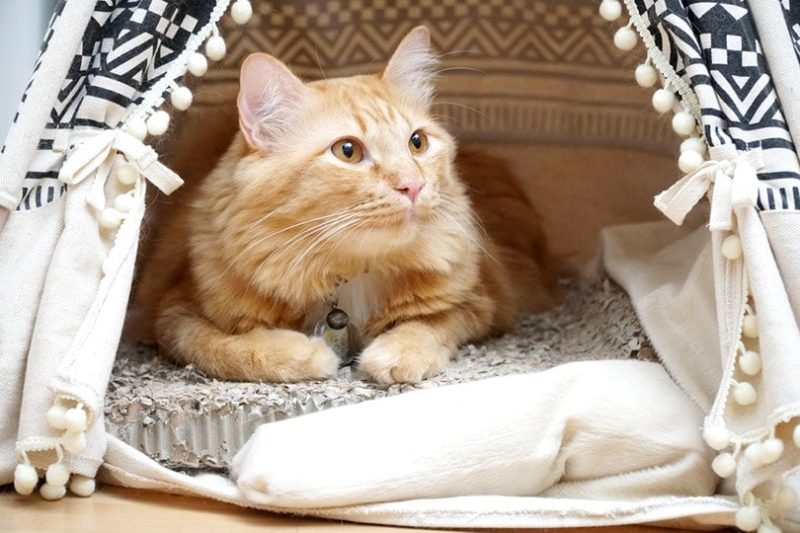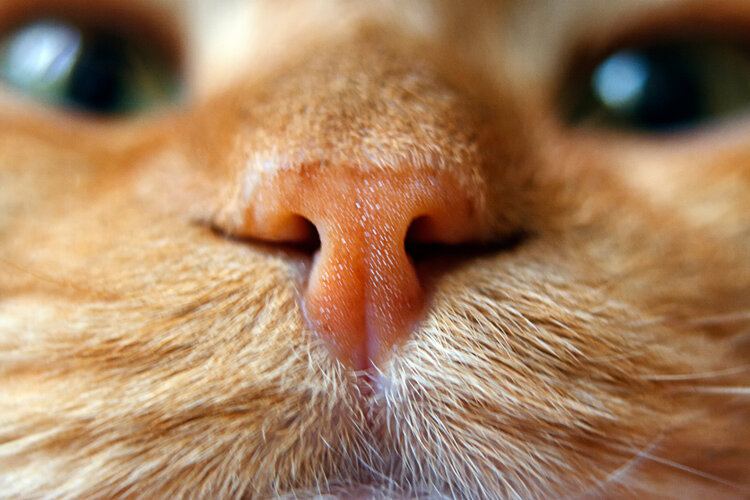Do Cats Have a Sense of Humor? Feline Emotions Facts

Updated on
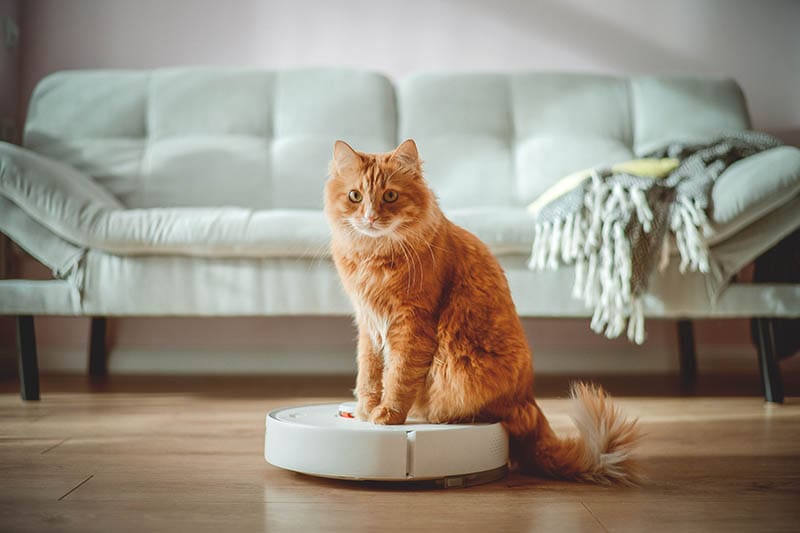
Cats may not be able to speak, but they have a wide array of ways in which they can communicate their feelings and vocalize their emotions. They purr when they’re content. They meow when they want something (and occasionally just to acknowledge your presence). They hiss and growl as a means of warning. But, unlike humans, they don’t have the capability to laugh when they find something funny—but does that mean they don’t have a sense of humor? According to science, it is unlikely that cats have a sense of humor, although they do have a sense of fun, engaging in games with one another and with their humans.
Read on to find out more about cats, their emotions, and whether yours might have a sense of humor.
Sense of Humor
Having a sense of humor means having the capability to find something funny. In humans, it may be accompanied by laughter. And according to at least one study, humans aren’t the only species that laughs. The study defines laughter as play vocalizations, or noises that an animal makes while playing or engaging in an enjoyable activity. The study found that species including dolphins and most primates exhibit this behavior. Cats do not make play vocalizations.
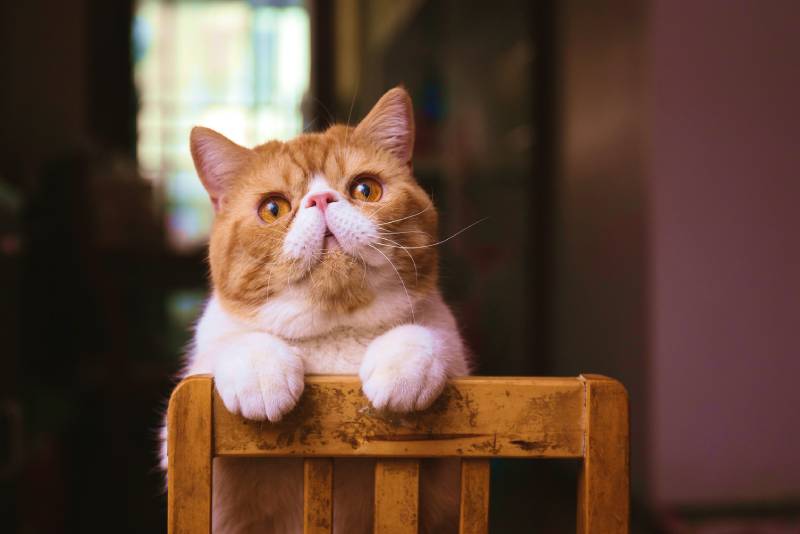
Cat Emotions
Cats do have a wide range of emotions. They can feel happy, and they seem to feel sad. They can also be anxious, upset, and playful. They have days when they want a lot of attention and days when they prefer to be left alone. It could be argued that they enjoy fun and playing offers cats a means of honing their hunting skills, although most domestic cats do not need to naturally hunt anything more than a bowl of prepared food. Some cats seem to take great pleasure in jumping out and startling their owners from across the room.
Cat Noises and What They Mean
1. Meowing
Kittens meow at their moms to get something they want: typically, food. Adult cats rarely meow at one another, but they have learned that meowing is an effective way to get their human’s attention. A meow can mean almost anything from a simple acknowledgment of your presence to letting you know it’s feeding time.
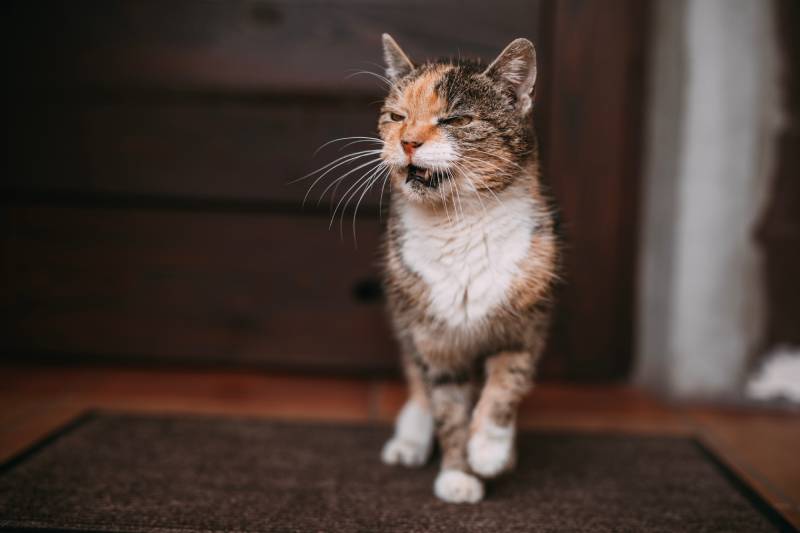
2. Purring
The gentle purring of your cat usually means that it is content and happy. Most cats purr when being stroked or shown affection, but this isn’t the only reason that some cats purr. It can be a sign of agitation or anxiety, and in these cases, it is normally accompanied by flattened ears and a tense stance.
3. Growling
Growling, hissing, and snarling are all potential signs that your cat is under threat or feels that it is under threat. The noises are used as a means of defense. The more threatening the cat sounds, the less likely any potential threat is to want to attack. If a cat is growling or hissing, it is a sign that you should back away and give them some space.
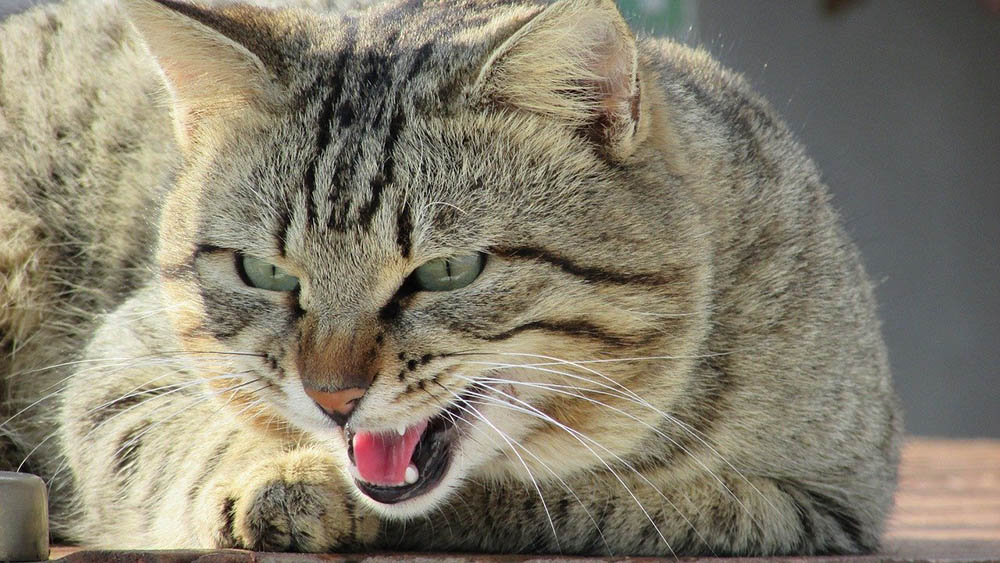
4. Yowling
Yowling is another noise that can have several meanings, although most of them are considered negative for your cat. It can accompany growling and hissing and mean that your cat feels threatened. It can also be a sign of some other type of distress. In other cats, yowling may be an everyday vocalization that they use to garner attention or as an indication that they want to play.
5. Chirruping
Chirruping is more common in kittens than adult cats, but some adult cats do continue this vocalization. It is used as a greeting and may also be an involuntary noise that a cat makes when it is excited or happy.
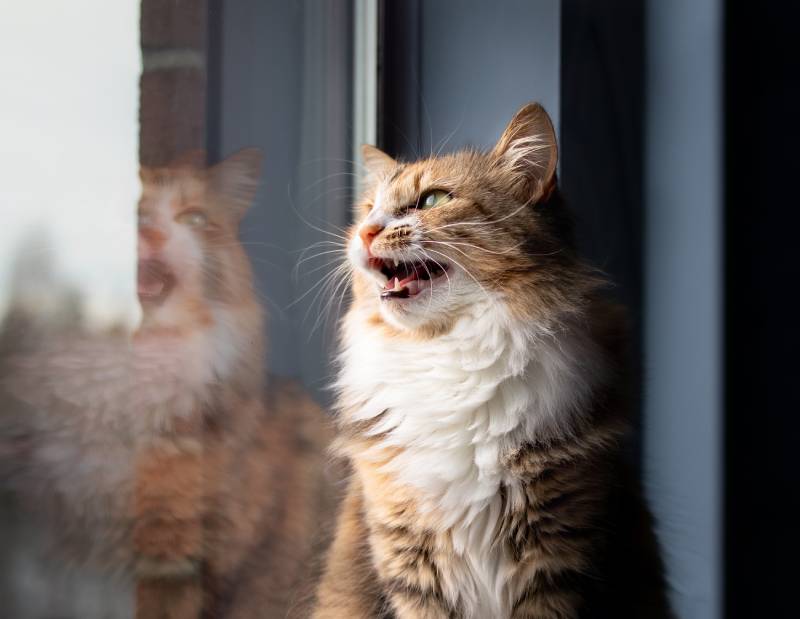
6. Chattering
If you are a cat owner and have watched your cat observing birds or other potential prey out of the window, you will likely have heard the chattering noise. As well as being a sign of excitement at seeing potential prey, it could also be a sign of distress that they aren’t able to get out and chase the bird or other animal they have seen.
In Conclusion
Cats may not be able to talk but they are highly skilled communicators. As well as communicating through body language and scent, they have a number of vocalizations they can use. However, cats can’t laugh, and while they do enjoy having fun, can be very playful if the mood takes them, and may appear to enjoy making fun of you, science tells us that cats do not have a sense of humor in the same way as humans do.
Featured Image Credit: Sharomka, Shutterstock



